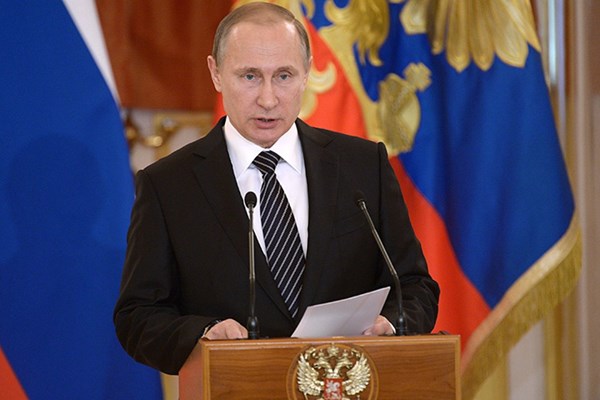Putin: Russian oil will be supplied to Belarus only if its exports take place through Russian ports
"Belarusian refineries process our raw oil. There is no other oil there and it is unlikely to appear, that is why we need to align their receiving our oil with the requirement of using our infrastructure," as said by President Vladimir Putin at a meeting on transport infrastructure development for the northwest Russia which was held on Wednesday, August 16th, in Kaliningrad, as reported by RIA Novosti.
Belarus has two oil refineries in Mozyr and Novopolotsk. Russia agreed to supply 24 million tons of oil to Belarus in 2017 on duty-free conditions, 18 million of which go directly to the refineries. However, oil products from these plants are exported through Baltic ports. Belarus does not use Russian ports at all, despite the fact that RZD (JSC Russian Railways) has provided the maximum 50% discount for transportation. "We are negotiating, Belarus says that they have long-term contracts for transport with these companies, but we are trying to build a dialogue with them," Oleg Belozyorov, President of RZD, told Putin during the meeting.
The main exporter of petroleum products in Belarus is the state-owned Belarusian Oil Company (BNK). It has not disclosed its export volumes through the Baltic ports. However, based on data reported by the business publication Belrynok, the volume of export of petroleum products through Estonia, Latvia, and Lithuania is about 10 million tons per year. The same number was confirmed to RBC news agency by one of the transporters engaged in deliveries throughout the Baltics. According to the RBC’s source in the Ministry of Energy, Belarus can export up to 6 million tons via Russian ports.
Three terminals in northwest Russia can take in Belarusian oil products. They are Ust-Luga Oil, controlled by businessman Andrei Bokarev, St. Petersburg Oil Terminal, and the LUKOIL terminal in Vysotsk. All of them specialize in the transport of petroleum products and own railway lines. Their representatives have not yet responded to RBC news agency's requests, but RBC’s source in the Ministry of Energy said that the tariffs for oil shipment through Russian ports were "affordable". However, he notes that the Baltic States are dropping the transportation prices in order to compensate for the deflated volume of Russian cargo.
A representative of the Ministry of Energy told RBC Group that the agency had not yet been instructed to make the provision of Russian oil to Belarus on the condition that Belarusian oil products are transported through Russian ports. Sources in Rosneft and LUKOIL, the main suppliers of oil to Belarus, also said that they did not receive any instructions on this matter and did not participate in any negotiations on this topic.
Rosneft spokesman Mikhail Leontyev told RBC that the company supports this proposal. At the same time, the source in Rosneft adds that duty-free oil supplies to Belarus are beneficial first of all to this country, and companies perform them only on the government’s instructions.
Russia purposefully pursues a policy of reorientation of export cargoes, which are transported through ports of neighboring countries to its own ports. As a result, the shipment of Russian cargo through the Baltic ports in 2016 fell by 20%, to 42.5 million tons, according to the information of Association of Sea Commercial Ports, as reported by TASS. Transport of oil and oil products decreased by 49.3%, to 10.08 million tons, and coal volume by 13.3%, to 16.36 million tons.
The president of Transneft, Nikolay Tokarev, said at the end of 2016 that the company would cease to deliver oil products to Latvia by 2018. The pipeline monopoly supplies oil products through the pipeline to the port of Ventspils or through the pipeline to Bryansk and then by rail. Now, Transneft is completing the Sever project aimed to increase the capacity of the oil products pipeline to the port of Primorsk from 15 million to 25 million tons per year.
